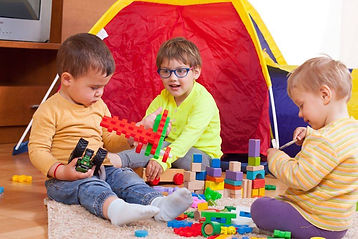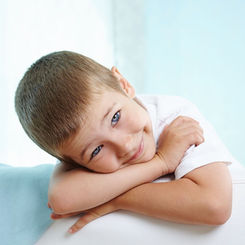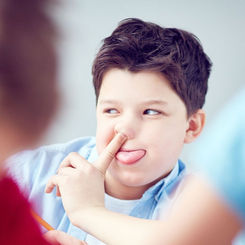
Common Psychiatric Kids Issues
Children can also have psychiatric issues that go beyond common frustrations, tempertantrums, or separation anxiety. Sometimes they are predispositions passed down as personality traits. Sometimes they are caused by a difficult birth or early medical intervention. Sometimes they are the result of neglect or bullying or struggling in school. Exposure to high stress in the family, family fighting or violence, or caregiver rejection. Never the less, children cope in different ways. Understanding your child and finding support for them can make all the difference. This page is informational and designed to help you seek care for them.

Auditory Processing Disorder
Auditory processing disorder (APD) is a hearing/understanding problem that affects approximately 5% of school-aged children. Individuals with this condition (known as central auditory processing disorder -CAPD), cannot process and understand what is heard in the same way other persons do. As a result, they experience slower and distorted comprehension as dyscoordination occurs between the brain and the ears. Persons with this may appear to be distracted and share similar symptoms as ADHD. click photo for link.
ADHD
ADHD is believed to be one of the most common neurodevelopmental disorders in children. The diagnosis should not be made hastily as it shares symtpoms with several other conditions. Today, it is often diagnosed in childhood and lasts into adulthood. Symptoms vary among Children and adults. Individuals often have trouble paying attention, are easily distracted, can be impulsive, or be overly active.
Autism Spectrum Disorder
"Autism spectrum disorder (ASD) is a complex neurodevelopmental condition that causes persistent challenges in communication, social interaction, speech, and nonverbal communication, along with restricted or repetitive behaviors. The severity of ASD symptoms vary with each person. click photo for link.
Pediatric Bipolar
In children persistent irritability and mood fluctuation without obvious mood swings occur. Symptoms tend to be a mixture of depression, irritability, aggitation, and anxiety. In adolescents, mood shifts appear as episodes that also include euphoria, grandiosity and paranoia. click photo for link.
PANS
PANS patients, suffer from uncontrollable emotions, irritability, anxiety and loss of academic ability and handwriting skills. Although PANDAS was identified as a medical syndrome more than a decade before PANS, it has been classified as a subset of PANS. To date, PANDAS is the only known subset of PANS, but we may discover more causes in the future.
PANDAS
Known as Pediatric Autoimmune Neuropsychiatric Disorders Associated with Streptococcal Infections (PANDAS). Symptoms occur dramatically, almost happening “overnight and out of the blue". Some symptoms can include motor or vocal tics or both and obsessions, compulsions, or both. Children often become moody and irritable, have anxiety attacks, and experience separation anxiety from parents or caregivers. PANDAS was identified as a medical syndrome 10 yerars before PANS, and is a subset of PANS. click photo for link.
Sensory Processing Disorder
Sensory processing disorder is a condition where the brain has trouble receiving and responding to stimuli that affects the senses. Previously called sensory integration dysfunction, it is not considered a distinct medical diagnosis. Persons with sensory processing disorder are described as overly sensitive to environmental stimuli, common sounds, smells, and lighting which can be perceived as overwhelming and irritating.
Pediatric Medical Trauma
Children (andcaregivers) can have traumatic stress reactions to pain, injury, serious illness, medical procedures, and invasive or frightening treatment experiences. These are known as traumatic stress reactions that involve psychological and physiological symptoms of arousal, re-experiencing, and avoidance. Experiencing pain, feeling helpless and out of control, and being separated from caregivers are factors contributing to the traumatic nature of medical events.
click photo for link.
Learning Disorders
Kids with learning disorders are often frustrated struggling to master a subject despite working hard. They commonly act out, behave helpless, and sometimes withdraw from others. Learning disorders sometimes co-ocur with emotional and behavioral disorders, such as attention-deficit/hyperactivity disorder (ADHD) or anxiety.


Influences on Behavior and Mental Health
Fast Food and Learning difficulties
The Daily Mail reported, "Diets high in processed foods are causing bad behaviour and learning difficulties in children, scientists have warned." They cited researchers who found junk food stops the brain working properly and leads to underachievement and many other disorders. click photo for link.
Sugar and Kids Moods
Even low levels of processed sugar in children can cause interference with neurotransmitters that balance and stabilize moods. Their is a direct link between processed sugar and depression and anxiety in children. Most importantly elevated sugar levels cause inflammation of brain cells of the hippocampus.


Child Behavior & Processed Foods
Negative child behavior like hyperactivity, irritability, and aggressiveness has been linked to Artificial food dyes and preservatives in processed foods. Disease Proof, reported that food dyes are found in most processed foods, especially ones marketed to children that contain colorful cereal, juice, and candies. Common dyes implicated for causing mood swings, irritability, and hyperactivity include Yellow 5, Yellow 6, Blue 1, and Red 40.

Learning More

Books to Support Kids









Calming Videos & Music

Parent Support Books













Specific Parenting Topics
If your mind feels wild count from 1 to 10 (slowly).
-Susan Gilis Chapman

Working towards more balanced moods
Meditation helps us develop a peaceful mind by showing us how to let go of thoughts and all the dramas they trigger.
-Susan Gilis Chapman

Make non-stressful memories

Encourage Imagination

Daily Physical Activity

Provide opportunities to Listen

Encourage balanced Friendships

Teach Manners

Hug your Kids

Teach Persistence

BAKYARD SENSORY DIET ACTIVITIES
Slide down a hill on cardboard
Grass sensory bin
Use a magnifying glass to inspect the grass and dirt
Mud kitchen
Roll down hills
Animal walks with barefeet
Create nature “soup” with grass, flower petals, sticks, etc.
Pick flowers
Cartwheels and tumbling on the grass (barefoot or with shoes!)
Water Table with nature
Cartwheel or tumbling
Target games
Bean bag games
Relay races
Hide and seek games
Simon Says games
Tag
Bell parade
Kazoo sound hunt
Listening for birds or animals
Record backyard sounds and playback the recording. Try to recognize and name the sound and where it was located in the yard.
Fill containers with items from the backyard. Shake plastic containers or even paper bags with the items and see if your child can name the objects.
Play Marco Polo in the yard!.
Learn more:
https://www.theottoolbox.com/outdoor-sensory-diet-activities-for-backyard/


















































